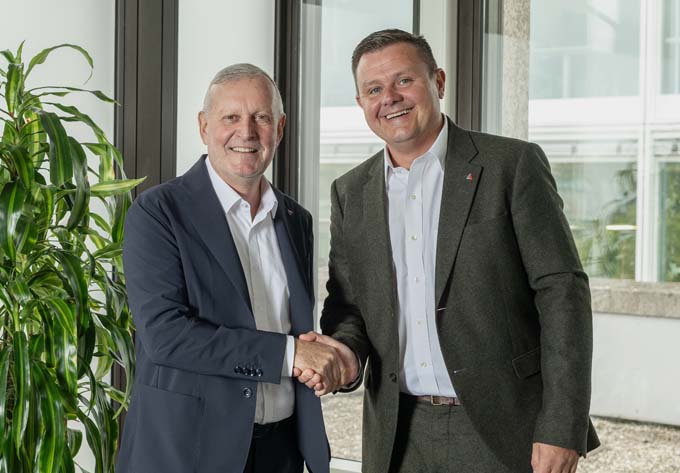Customer satisfaction is the most important corporate goal
Successful companies are increasingly thinking holistically. Employee-related and process-related aspects, especially purpose, diversity and sustainability, are increasingly recognized as important success factors for entrepreneurial progress. This is confirmed by this year's Future Organization Report by Campana & Schott and the Institute for Information Systems at the University of St.Gallen. The study examines the agile transformation of companies and identifies what distinguishes excellent organizations.

"Companies increasingly understand that to be successful, you have to act in a holistic and agile way. This is the only way to achieve organizational excellence," explains Christian Schmid, Project Executive at Campana & Schott. "However, the figures of the Future Organization Report 2021 also show that these processes are not yet consistently thought through to the end and broken down to the employee level. This must change. Because only employees and efficient processes that mesh with each other ensure sustainable value creation."
For 90 percent of those surveyed, customer satisfaction is even more important than profitability when it comes to business decisions. At the same time, requirements are constantly changing: customers want to be involved in development processes and are increasingly demanding more sustainability in addition to fast, digital products. 68 percent of respondents consider the environment to be important for business decisions.
Agility is an integral part of the process organization
To respond to changes in customer demand as quickly and effectively as possible, excellent companies need to be agile - this was already shown by the Future Organization Report 2020. Compared to the previous year, corporate agility increases from 41 to 46 percent. And that's paying off: Companies can increase their adaptability to changes in demand by over 26 percent.
For excellent processes, companies should also create a common understanding of processes and structures, design them in an agile manner and not disregard the human factor in this equation.
One of the most important levers for more agility is digitalization through modern IT technology. 47 percent of managers and employees perceive strong IT performance as a great help on the path to process excellence. But not everyone is aware of the possibilities: the biggest obstacle here is IT legacy. But those who digitize outdated systems are rewarded - 63 percent of respondents believe that modern IT improves their competitive position.
Customers are also increasingly demanding process digitization, as this opens up new, personalized service options. It also helps companies to involve customers in the development of new products and services - which 70 percent of respondents see as very positive.
Motivated employees bring companies to their goals
A trusting relationship is not only helpful for customers. It is the employees in particular who benefit from a close and open exchange. The study shows that qualified, motivated employees are the key to organizational excellence. This is also seen by the executives, who assign the third and fourth greatest importance to the retention and professional growth of employees in important management decisions.
Excellent organizations know that employees only perform excellently if they are motivated and qualified and have the right framework conditions for their work. Purpose, incentives and further training, but also technical equipment, psychological security and empowerment in the company make a decisive contribution to this. The importance of cross-functional and cross-team collaboration is also increasing: cross-functional teams are far more productive.
Empowerment includes self-organization, to which 87 percent have a strongly positive attitude. To this end, agile online tools for work planning are increasingly being used, so-called online labor markets. "Online Labor Markets are AI-supported platforms that allow employees to choose tasks on their own," says Prof. Christoph Peters, Assistant Professor and Co-Director of the Competence Center Agile Transformation at the Institute of Information Systems at the University of St.Gallen. "Using these leads to more psychological empowerment and an expansion of employees' own competence profiles."
That a high-performing workforce also needs an overarching purpose is something 64 percent of respondents agree on. Employees who see their work as meaningful are more intrinsically motivated. So management must first have a vision and then communicate it convincingly. There is a lot of catching up to do here: although companies know the value of their employees in achieving their goals, according to the study, 25 percent of employees do not know what these goals actually are.
Source: Campana & Schott Business Services GmbH
The study
The Future Organization Report 2021 of the Institute of Information Systems at the University of St.Gallen and the management consultancy Campana & Schott shows the status of companies in Germany, Austria and Switzerland with regard to their degree of agility. To this end, data was collected from 522 managers and employees in a quantitative online survey. In addition, 22 qualitative interviews were conducted with top decision-makers from ten industries from mid-February to mid-June 2021. Twelve of the top decision-makers had already participated last year. The interviewees play a decisive and active role in the design and implementation of corporate goals.
Further information can be found at: https://www.campana-schott.com/for2021









